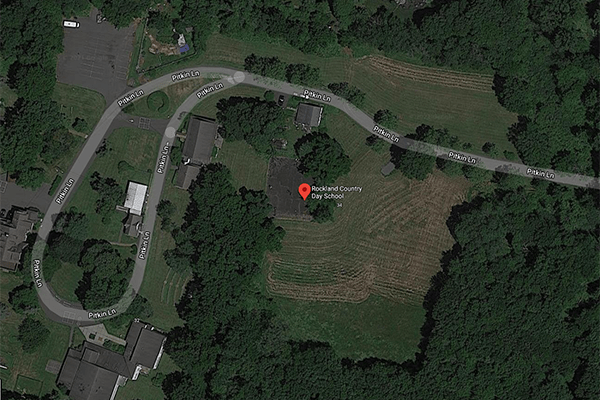|
RCBJ-Audible (Listen For Free)
|
Michael Shilale Architects Will Study Housing & Building Reuse Options On Site Clarkstown Purchased In 2018 For $4.4 Million
By Tina Traster
Five years after it purchased the site, and two years after retreating from a controversial effort to rezone a portion Rockland Country Day School’s campus, the Town of Clarkstown has tapped an architect to conduct a “feasibility study” to help plot the property’s future use.
“We bought the property to building housing there,” said Ward 2 Councilman Mike Graziano.
The town has hired Michael Shilale Architects LLP of New City to perform a feasibility study for “new housing and building reuse” on the Rockland Country Day School property. Shilale, an architect who has worked on several projects in the county, will prepare preliminary drawings to review options for site and building layouts. His firm has been hired to review zoning challenges for the site.
Shilale’s fees will be capped at $27,000. RCBJ contacted Shilale but he said he could not comment on what his firm has been hired to undertake for Clarkstown.
Michael Shilale Architects, LLP (MSA) has worked on a feasibility study for the construction of a new Fire Department headquarters for the Thiells- Roseville Fire District. The firm also worked on the Homes for Heroes project in Tappan, which built eight one-bedroom units for veterans who have special needs. Shilale Architects has also been involved with a myriad of projects including the YMCA in North Rockland, the Halmar International Headquarters in Nanuet, and Cross Life Church in Thiells.
Two years ago, Clarkstown planned to move ahead to rezone a portion of the Rockland Country Day School site to allow either affordable senior housing or housing for volunteer fighters or EMT workers. Amid a storm of protest over residential building on site, the town council retreated, tabling the proposal. Nothing has happened since to the site, which the town purchased in 2018 for $4.4 million.
At the time, residents at a town hall meeting voiced opposition to any development on the site. They said Supervisor George Hoehmann had promised to preserve the campus for open space, but the Supervisor rebutted that notion, citing that the property had always been considered for affordable housing for seniors. It seems likely Shilale will once again look at some kind of senior or affordable housing on site.
“We bought the property to building housing there,” said Ward 2 Councilman Mike Graziano. “I envision either building market-rate rental housing for seniors and first responders, or selling the land to a developer to build single-family houses.”
Graziano said the town has not discussed selling the property, though if it did, a developer would undertake its own feasibility study.
Clarkstown has had a spate of proposed or in-progress market-rate senior housing projects materialize in the past couple of years. However, affordable senior housing is scarce in the town where empty nesters find it difficult to keep up with annual tax increases.
“Senior housing is going to be looked at,” has said Hoehmann, adding that the town-owned senior housing Middlewood Senior Citizen Park in Nanuet offers an affordable option for town seniors, has a waiting list of more than 300, and generates revenue for the town.
Clarkstown’s updated Comprehensive Plan, which is expected to be unveiled this spring, calls for development of a broad variety of housing units for seniors at all income levels, lifestyles and levels of care. The average cost of assisted living in and around New City is $4,978 per month compared to the national median of $3,495, according to caring.com.
Affordable units based on today’s county median income would mean units renting for about $1,666 per month.
In 2021, the town had planned to vote on a resolution to change a portion of 7-acres from R-40 (single-family homes on one-acre lots) to R-22 (single-family homes on half-acre lots). The zone change, the town had said at the time, was not tailored to any specific plan for a senior housing development, but rather to unify the zoning of the nearly seven-acre parcel that is split between R-40 and R-22.
But residents expressed near global opposition to building on site, particularly a dense housing development, raising a host of concerns about development on the large tract, from traffic issues, light pollution, a change of character to the bucolic aesthetics in a neighborhood of single-family houses. Others spoke about potential environmental impacts including adding stress to the water tables, drainage, and the razing of trees.
Rockland Country Day School closed after 60 years due to falling enrollment and financial woes and declared Chapter 7 bankruptcy.
The town is free to develop the land as it pleases but if it engages a developer for senior housing, the developer will need a special permit. The special permit would allow up to 136 units on a property situated on a state or county road. The code allows for 20 units per acre for senior housing built by a nonprofit; the number falls to 16 units for a for-profit developer. However, every council member agreed that the maximum allowable density was inappropriate for the site.
The town has not tapped a developer, nor has it made clear what it intends to do with the entire 22-acre Kings Highway campus.















